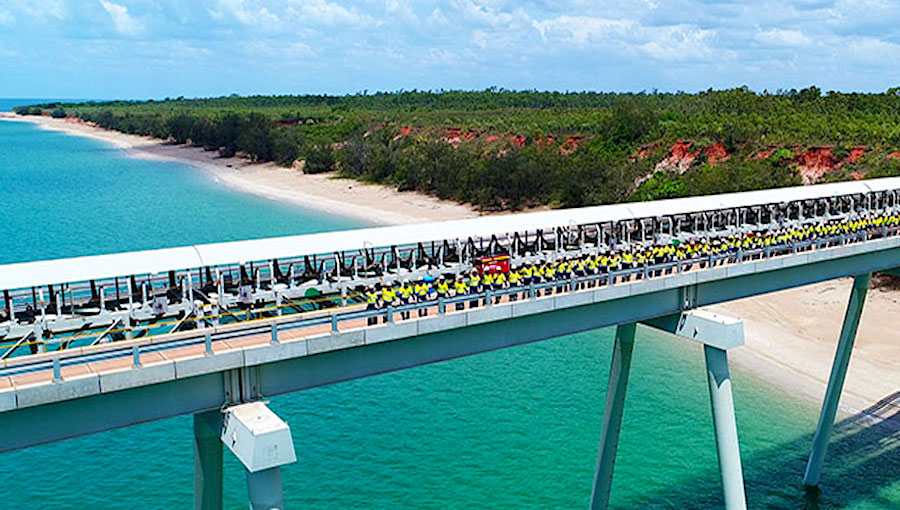Rio Tinto talking to Apple on next step of carbon-free aluminium project

Rio Tinto is in talks to move into the next phase of an agreement with Apple, Chief Executive Jean-Sebastien Jacques said on Friday, as the miner looks to transition its aluminium business to tap a low-carbon economy.
Last May, Rio and Alcoa announced a joint venture, backed by Apple, to commercialize by 2024 a process that emits oxygen and replaces all direct greenhouse gas emissions from the traditional smelting process for aluminium.
Bauxite is the raw material for aluminium, which is used in everything from beer cans to aeroplanes and is expected to gain greater use in a decarbonising economy as a lightweight alternative to steel. However, it is still one of the most carbon-intensive metals to produce.
Rio, which has pledged substantial decarbonization by 2050, is reshaping its aluminium division longer term to focus on supply chain transparency and lowering emissions.
“At the end of the day, what we can see is the customers of our customers want to have full traceability on their products, and they want to make sure they have a carbon-friendly product,” Jacques said on Friday at the unveiling of Rio’s new Amrun bauxite mine in northern Australia.
“The technology that we are developing is – instead of using the carbon anodes – is to use an anode made of ceramic so you would not consume any carbon, and you would not release any CO2 into the atmosphere,” he said.
Rio, which has pledged substantial decarbonization by 2050, is reshaping its aluminium division longer term to focus on supply chain transparency and lowering emissions, Jacques said.
“We are looking at the next wave of partnership with Apple,” Jacques said, although he provided no further details.
If the new smelting process under development proves commercially viable, he said, Rio would retrofit its entire fleet of existing smelters with the technology.
The miner has also taken steps to have its Amrun bauxite mine certified by a scheme that signifies it is ethically sourced, given its land use, heritage and working agreements with local indigenous groups.
“(We will show) that Amrun is part of the supply chain, so we can demonstrate from the bauxite to the aluminium in your iPhone or in your laptop, we fully understand the entire chain and that is consistent with what customers like Apple want,” Jacques said.
Global mining majors have been highlighting their climate and community credentials as they look to repair an image tarnished by environmental disasters and overspending, amid pressure from investors with an environmental, social and governance, or ESG, agenda.
Jacques said in Melbourne last year that mining had an image problem as “one of the least trusted on the planet”.
Rio has several aluminium plants in Australia and is among the country’s top five carbon emitters, according to combined data from the Clean Energy Regulator that counts direct emissions and indirect emissions from purchased power use.
In a climate report last month, Rio said it produced 28.6 million tonnes of such emissions last year but that it was on track to beat a target of reducing its emissions intensity by 24 percent from 2008 levels by 2020. (Reporting by Melanie Burton; Editing by Tom Hogue)
More News
{{ commodity.name }}
{{ post.title }}
{{ post.date }}




Comments